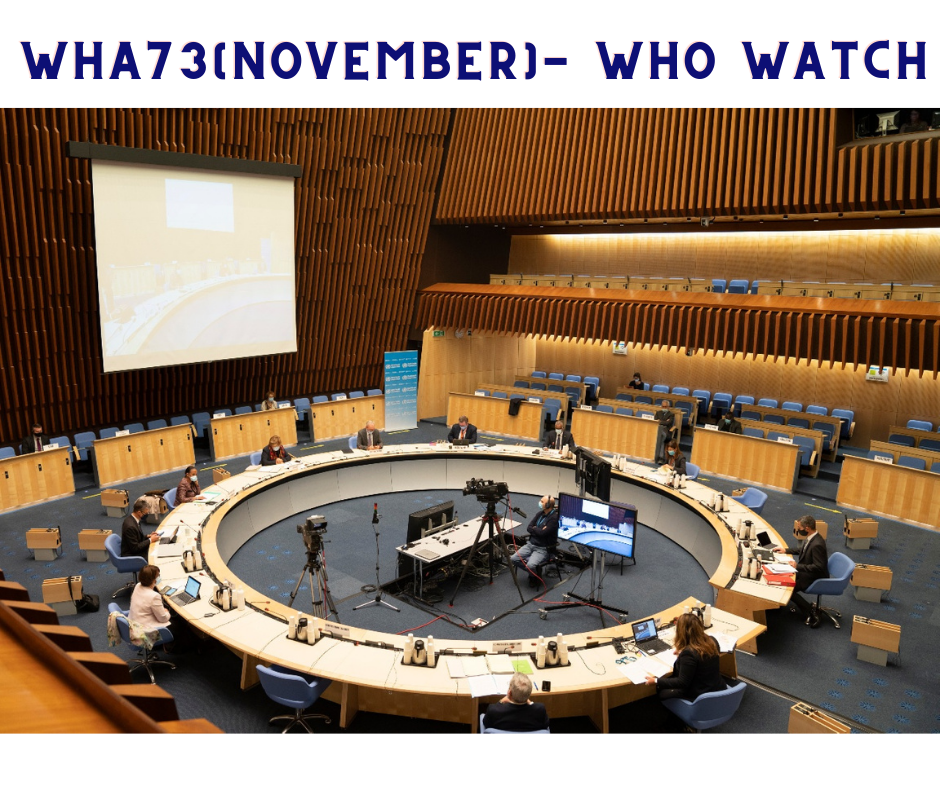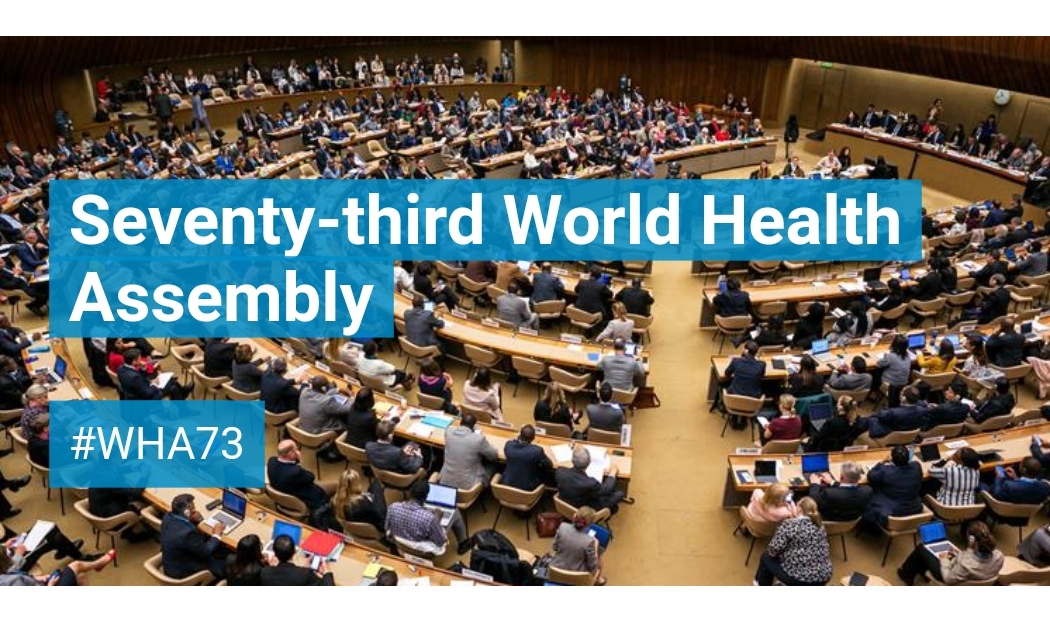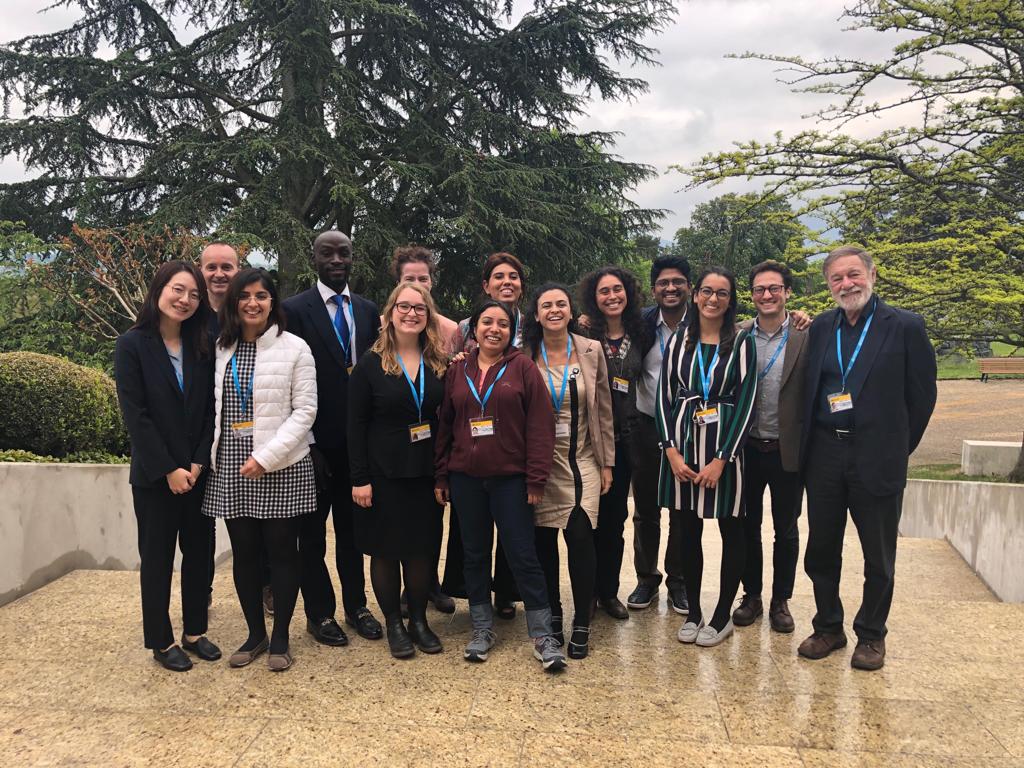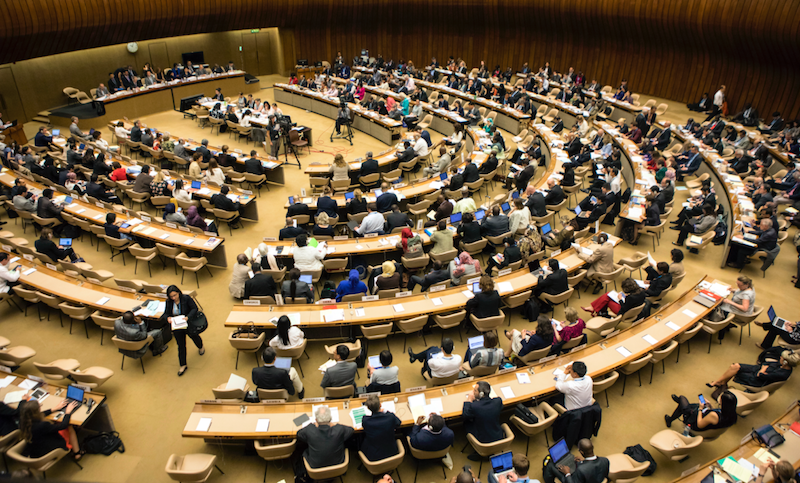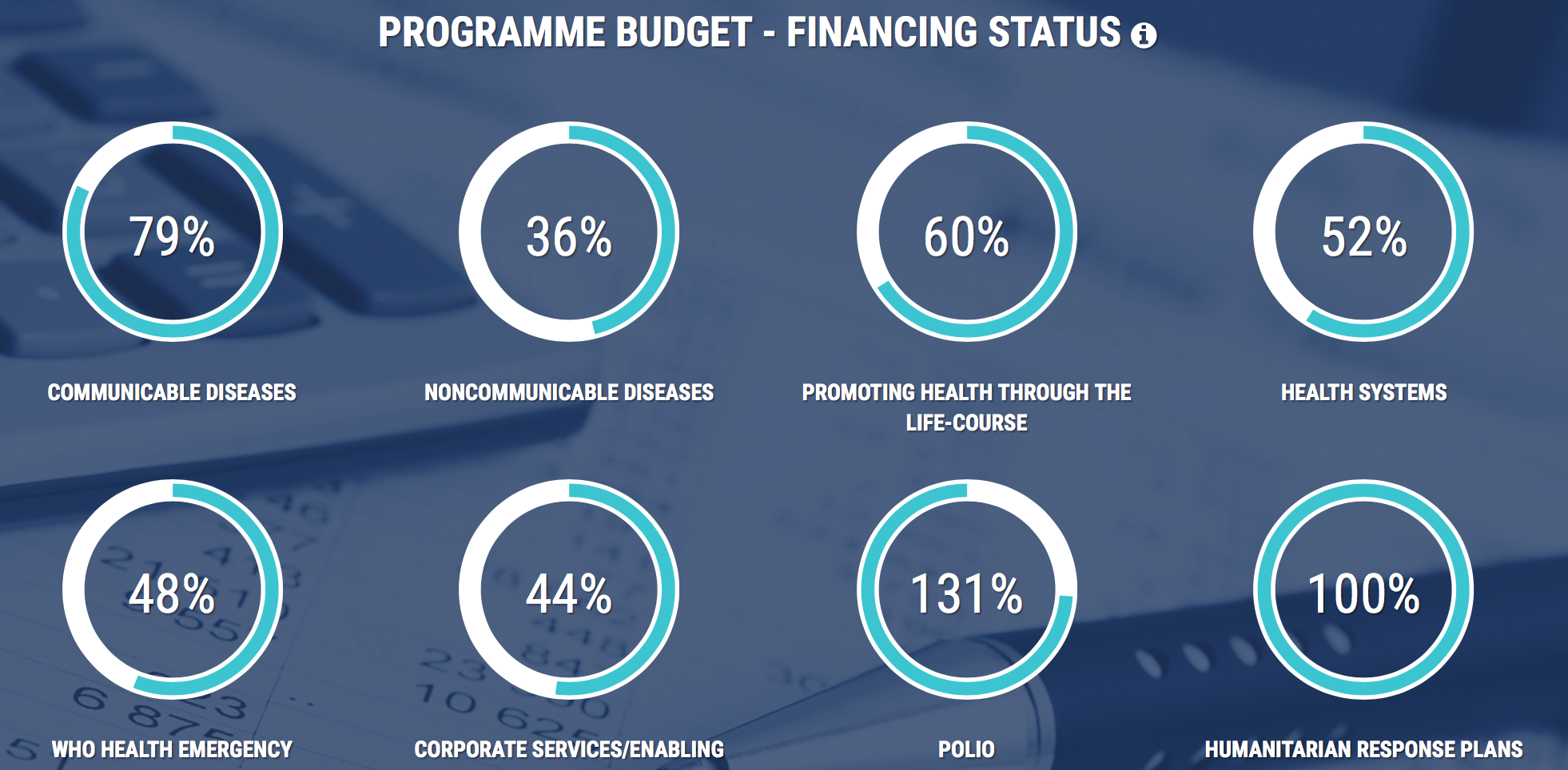EB148 Watch: Policy Briefs, Statements and Agenda
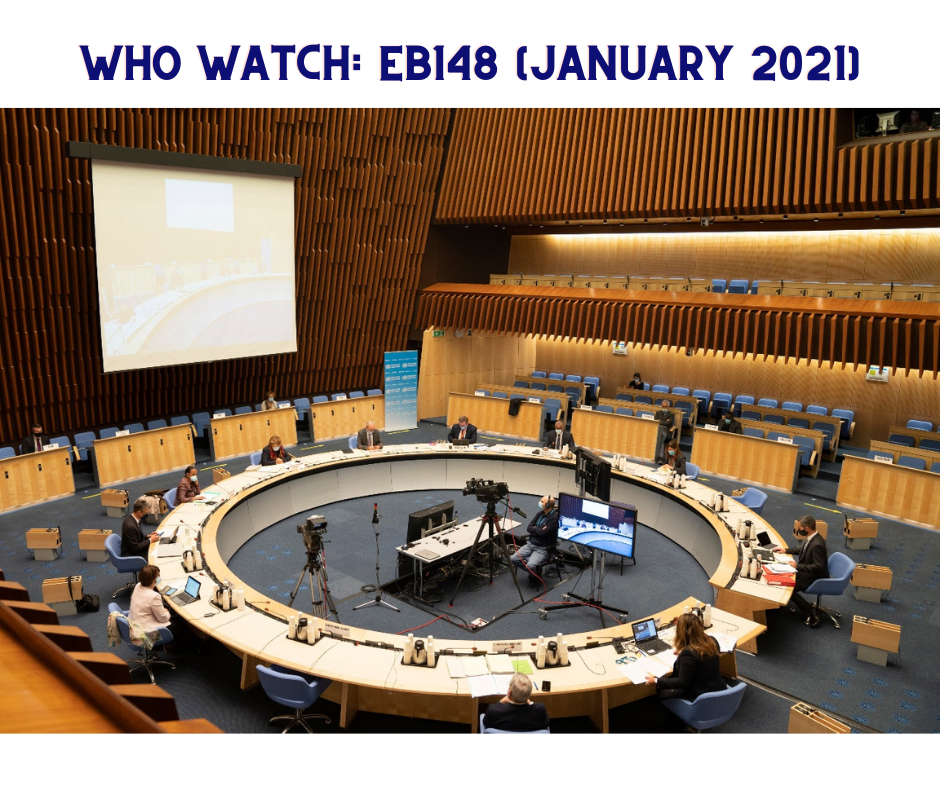
The People’s Health Movement’s WHO Watch team will followed the executive Board meeting of World health Organisation held from 18-26 January, 2021. The Watching team consisted of Aletha Wallace
(Belgium), Alice Kuan (USA), Maria Giulia Loffreda (UK/Italy), Laura Nyiha (Kenya), Luciani Martins Ricardi (Brazil), Priyanka Gupta (Nepal), Rajeev B R (India), Rhiannon Osborne (UK), Shriyuta Abhishek (India), Surbhi Shrivastava (India/USA). PHM, in collaboration with Medicus Mundi International, deliver statements at the meeting.



